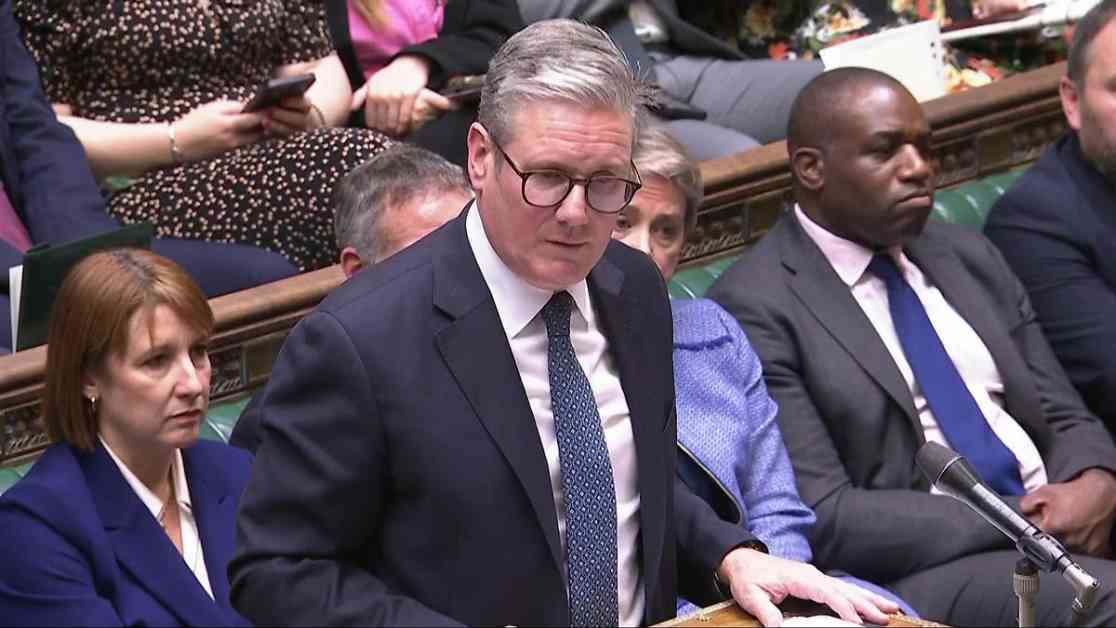Sir Keir Starmer, the leader of the Labour party, challenged Rishi Sunak, the Prime Minister, during the recent Prime Minister’s Questions (PMQs) session regarding national security. Mr. Sunak claimed that the implementation of the foreign agents registration scheme had been halted by the PM, to which Mr. Starmer responded by stating that it was not correct. This exchange led to cheers from Labour backbench MPs, highlighting the tension between the two political figures.
In addition to the discussion on national security, Mr. Starmer also shed light on the government’s consideration of sanctioning two Israeli ministers over their actions in Gaza. He emphasized the need for Israel to take steps to avoid civilian casualties and provide aid to Gaza effectively.
Furthermore, a private members bill on assisted dying was introduced to the House of Commons shortly after PMQs. The Terminally Ill Adults (End of Life) Bill, presented by Labour MP Kim Leadbeater, aims to provide autonomy to terminally ill adults while ensuring that disabled and vulnerable individuals are not at risk under the legislation. The Bill is set to have its Second Reading on Friday, November 29, where MPs will vote based on their conscience rather than party lines.
Moreover, Mr. Starmer addressed the issue of NHS waiting lists in Wales, promising to collaborate with the Welsh government to bring down the waiting times. He criticized the previous government for being in conflict with the Welsh government and highlighted the importance of working together to deliver better healthcare services across Wales.
In response to Rishi Sunak’s attempt to score party political points on Britain’s security and education, Mr. Starmer rebuked him, emphasizing the need for unity on matters of security and intelligence. He criticized the government’s decision to halt the Freedom of Speech Act, which aimed to protect universities from foreign influence, particularly from China.
Overall, the PMQs session was marked by tense exchanges and discussions on crucial issues such as national security, assisted dying, sanctions against Israeli ministers, and healthcare in Wales. The contrasting views and approaches of Mr. Starmer and Mr. Sunak showcased the political dynamics at play in the UK government. As the debate continues, it remains essential for leaders to prioritize the well-being and autonomy of citizens while addressing pressing challenges facing the country.












